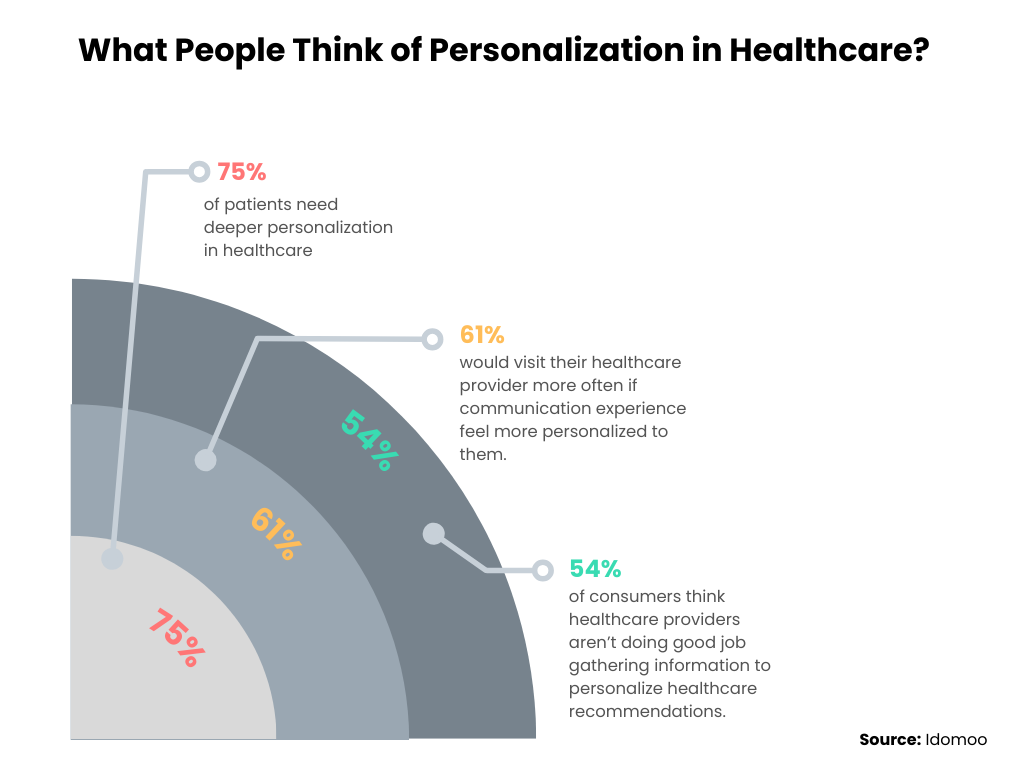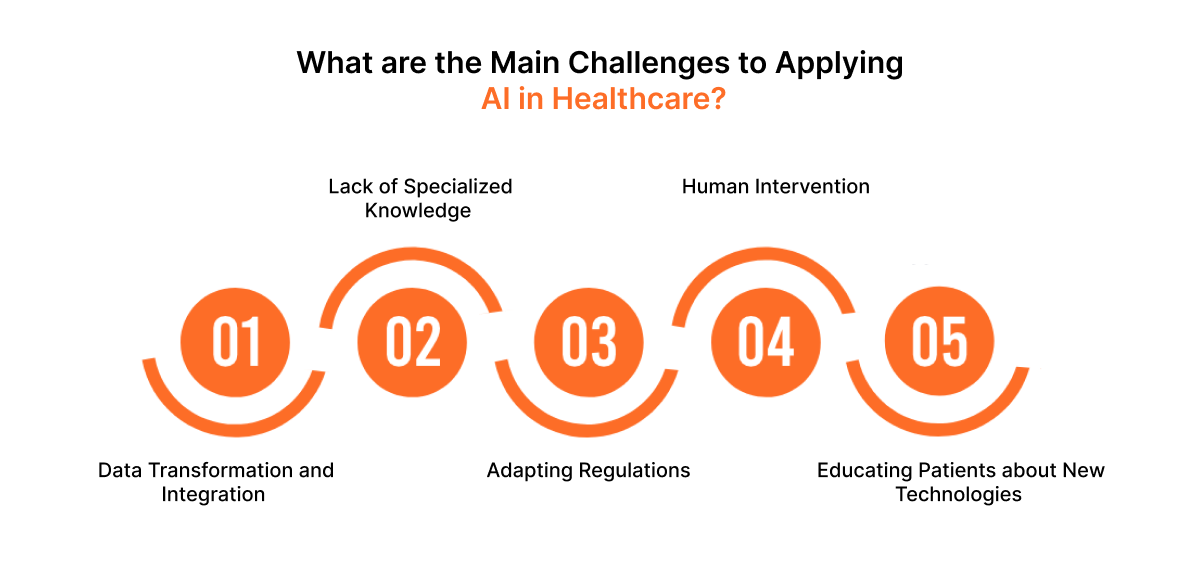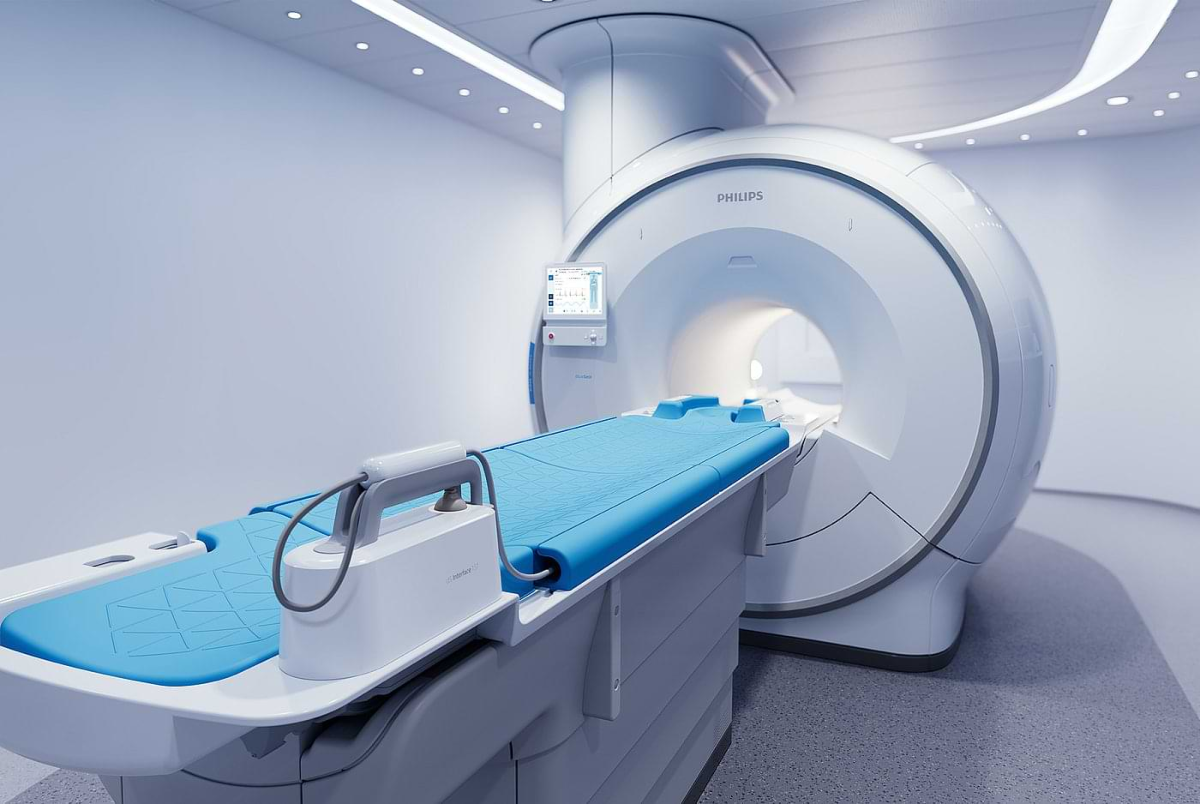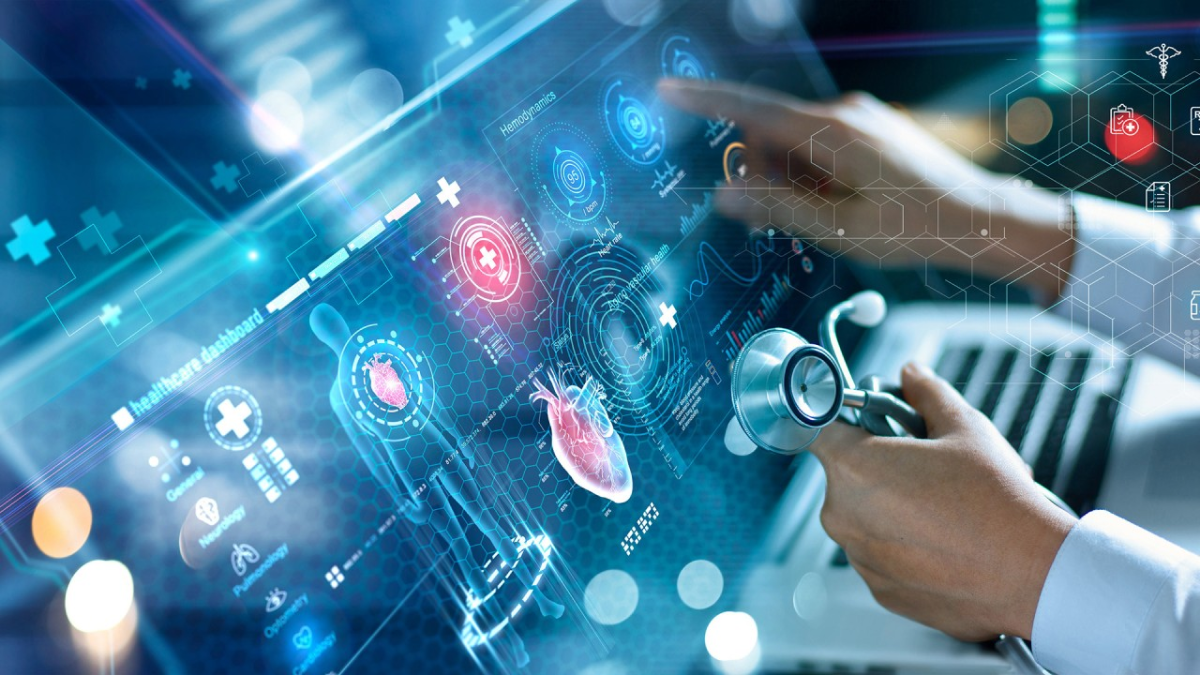2500+
Successful Projects

AI in healthcare is emerging as a transformative force that is swiftly revolutionizing traditional medical practices. The increased use of emerging technologies and data analysis in the medical field presents an ocean of opportunities for AI in healthcare.
We see people becoming more health conscious these days, especially after the pandemic. They aren’t ignoring the most minor symptoms and are running to the doctor without a delay. With that being said, the number of patients keeps growing, which generates a vast amount of health data. If processed effectively, this data can be turned into actionable insights. It can help in creating personalized medicine and digital health records, uncovering the crucial role of AI in healthcare.
Table of Contents
Integrating smart technologies, such as AI and ML, in healthcare not only helps in the early detection of diseases but also improves patient care. Considering the industry's huge potential, many mobile app development companies have started offering AI development and automation services.
So, are you ready to witness the new era of healthcare? Believe us, AI is the future of healthcare. Still, figuring out how? This guide will help you understand the role of AI in healthcare, highlighting its benefits, challenges, real-life use cases, and examples. So, let’s get started!
AI in healthcare can be understood as a broader term that involves the use of artificial intelligence, machine learning algorithms, and emerging technologies in the medical field. Simply put, it is all about using computers and other machines to analyze and process medical data to predict a specific outcome.
A significant use of artificial intelligence in healthcare is the use of machine learning algorithms and other cognitive intelligence technologies for the purpose of medical diagnosis. With patient information, AI can help healthcare professionals give more accurate diagnoses and treatment plans. Using big data, technology can help make the healthcare industry more proactive in creating preventive care recommendations for patients and their families.

Artificial intelligence has significantly impacted the healthcare sector, mostly in a positive way. Technology has transformed various aspects of treatment, disease diagnosis, and patient care. Here are some potential benefits of AI in healthcare:
In many emerging countries, the healthcare sector is still struggling, leading to a lack of standard medical services and infrastructure. This shortfall significantly increases mortality risks for residents in these regions. The World Health Organization has indicated that this deficiency in healthcare access contributes to a life expectancy difference of 18.1 years between the wealthiest and poorest countries worldwide.
However, artificial intelligence advancements offer hope for these underprivileged communities by establishing a practical healthcare framework. AI-driven digital platforms are enhancing the way patients are diagnosed and treated. Moreover, specialized apps have been created to unite local and global health organizations to support those in dire need.
Another noteworthy benefit of using Artificial Intelligence in the medical sector is the streamlined exchange of information. To harness the full capabilities of AI and targeted medical treatments, algorithms must process vast datasets swiftly.
AI-powered healthcare systems are more adept at pinpointing specific patient information than traditional methods, freeing physicians to focus more on prescribing treatments. Immediate action is often necessary in medical scenarios, and AI offers healthcare professionals analytical support based on solid data.
For example, systems that transmit glucose readings allow individuals with diabetes to track their blood sugar levels live and obtain analyses to review and manage their condition with doctors or peer groups.

Modern AI technologies are using patient data to enhance the precision of health assessments. Medical experts can accurately pinpoint illnesses by analyzing past and current medical conditions. Numerous health-focused mobile applications have processed vast amounts of symptom data and medical outcomes, which is instrumental in foreseeing future health risks for individuals.
For instance, Verily by Google is designed to predict genetic disorders that are both inherited and non-infectious. With such advanced tools, medical professionals can anticipate and mitigate future health hazards by implementing proactive measures. Similarly, the advent of predictive analytics has revolutionized the efficiency of healthcare operations.
Artificial intelligence has transformed healthcare, making it swifter and more affordable. AI's influence spans from initial patient assessments to final diagnoses, significantly accelerating the process and reducing expenses.
For example, AI systems are adept at detecting bodily biomarkers indicative of illness, streamlining the previously labor-intensive process of identification. This automation has a profound impact, enabling quicker responses that can save more lives.
Moreover, AI's cost-effectiveness surpasses traditional healthcare approaches. Patients benefit from fewer laboratory visits as AI provides predictive outcomes based on their data, contributing to its widespread adoption. In just the past year, there's been an 88% increase in organizations integrating AI into their operations.
Overcrowding and disorganization in medical centers often lead to adverse patient experiences. Artificial intelligence offers a solution by streamlining the flow of information, enabling patients to access their reports swiftly, and guiding them efficiently through the healthcare process.
A recent survey indicates that 83% of patients cite inadequate communication as the most distressing part of their healthcare encounters. AI also excels in providing constant accessibility to patients.

A prime example is Babylon, an app equipped with an intelligent symptom checker that enhances patient care. It operates by posing questions, evaluating responses, and cross-referencing known symptoms and risk factors to deliver precise, current medical advice.
As with potential benefits, applications of AI in healthcare aren’t without challenges. Here are some possible challenges to applying artificial intelligence in the healthcare sector:
The biggest challenge in applying AI in healthcare is the 'input-output quality' correlation. AI systems rely heavily on extensive datasets to produce meaningful outcomes. Hence, processing premium healthcare data is crucial, yet this task has grown more challenging.
The complexity arises from the scattered and disorganized nature of health records across diverse databases and institutions. With patients frequently switching insurers and medical providers, gathering consistent data becomes formidable.
AI proficiency is rare among medical professionals. Understanding the workings of an AI system can be daunting for most, as these systems are designed to mimic human cognitive processes.
This leads to what's known as the 'black box' issue, where although we feed in data and receive outputs, the internal processing mechanisms remain elusive.

Globally, medical records are safeguarded by strict confidentiality and privacy statutes. This level of security could classify the exchange of data between AI systems as a breach of law. Where permissible, patient consent is mandatory for collecting and applying medical data for these purposes.
We require adaptable regulations for the procurement of medical data that also safeguard identity. Healthcare providers must adhere strictly to these regulations and be held accountable for gathering and utilizing patient data. This approach is crucial for compiling precise, superior-quality medical datasets for AI applications.
Many patients and healthcare professionals harbor reservations about AI. For instance, radiologists are wary of being replaced by automated systems. Similarly, patients are hesitant to entrust machines with their health issues.
The onset of the pandemic in early 2020 introduced video consultations with doctors, which were initially met with uncertainty. Patients need to understand how physicians can effectively assess their health or monitor vital signs like blood pressure remotely.
As patients recognize that robotic surgeries can result in minimal scarring, reduced blood loss, and faster recovery times, their receptiveness to AI may increase. Patient trust in AI's advantages within healthcare will grow as they become more acquainted with its benefits.

The applications of AI in Healthcare are limitless, with early disease diagnosis being the most prevalent one. Here’s a list of other crucial use cases of AI in the healthcare industry:
Artificial intelligence serves as an instrumental resource in medical case sorting. It aids healthcare professionals in examining diagnostic images, empowering radiologists or heart specialists to pinpoint key findings that prioritize urgent cases. This helps circumvent potential misinterpretations of digital medical records and leads to more accurate diagnostic conclusions.
A single clinical investigation can generate extensive data and imagery requiring scrutiny. AI-driven algorithms can swiftly sift through this information, contrasting it with previous studies to detect trends and subtle correlations. This capability allows imaging experts to isolate vital data rapidly.

The vast amount of healthcare information and patient records presents a challenge for clinicians to keep updated with medical progress while delivering patient-focused care. Machine learning tools can rapidly parse through EHRs and biomedical data compiled by healthcare facilities and practitioners, offering timely and dependable insights.
Patient health information often exists in complex, unstructured formats, complicating its interpretation and retrieval. AI is adept at locating, gathering, organizing, and standardizing this data, irrespective of its initial format.
This streamlines repetitive tasks and equips clinicians with swift, precise, personalized care strategies and treatments for their patients. It liberates them from the laborious tasks of searching, identifying, collating, and transcribing necessary information from voluminous paper-based EHRs.
Innovative AI algorithms can help discover new uses for drugs, assess their safety profiles, and understand how they work. This breakthrough has given rise to a platform dedicated to drug discovery that repurposes known drugs and biological agents.
Leveraging cutting-edge AI, automation, and a fusion of biology, data analysis, and chemistry, the creators of this platform can produce approximately 80 terabytes of biological data weekly from 1.5 million experiments, all processed by AI.
The moments following a heart attack are critical, and the actions taken from the initial 911 call to the ambulance's arrival can be life-saving. Emergency operators must quickly identify cardiac arrest symptoms to respond effectively. AI can evaluate both spoken words and subtle sounds to diagnose a patient remotely.
Corti is an AI system that supports emergency medical teams by interpreting the caller's tone, ambient sounds, and the patient's medical history to detect heart attacks. Unlike traditional systems, Corti self-educates by analyzing numerous calls and identifying key indicators for effective diagnosis. As it learns, Corti continually refines its model. It distinguishes between irrelevant noises like sirens and vital auditory cues from callers or patients.

The absence of a centralized digital repository for Electronic Health Records (EHRs) can present significant challenges in both research and patient treatment. The AI healthcare systems can assess the effectiveness of the care provided, fine-tune treatment protocols, and compile extensive data on oncology outcomes, including diagnostic imaging.
The integration of automated clinical note generation with EHRs has significantly decreased the time healthcare professionals spend on patient record management. This enhancement has led to more efficient medical procedures and improved patient health results.
With the emergence of predictive analytics, EHRs have been transformed into powerful AI-enabled forecasting tools. This innovation empowers medical practitioners to streamline their workflows and make more precise medical judgments and treatment strategies.
By employing Natural Language Processing (NLP) and Machine Learning (ML), the platform can swiftly analyze a patient's complete medical history, correlating it with current symptoms, persistent conditions, or familial diseases. This analysis is then utilized to create a predictive analytics tool to identify and address illnesses before they escalate to critical levels.

To help you understand the topic more precisely, here are some real-world examples of how AI is being used in the healthcare sector:
An estimated 400,000 patients in hospitals experience harm that could have been avoided annually, leading to approximately 100,000 fatalities. AI holds the potential to revolutionize the diagnostic process, which is a crucial aspect of healthcare.
Due to factors like incomplete patient records and overwhelming workloads, medical professionals can make critical mistakes. AI, unaffected by such issues, has the capability to identify and predict illnesses more rapidly than many healthcare practitioners.

The pharmaceutical industry faces challenges with exorbitant drug development costs and extensive research hours. The average expense for a drug's clinical trials is around $1.3 billion, with a mere 10 percent making it to the market.
However, AI is transforming this landscape by accelerating drug design, forecasting potential adverse effects, and pinpointing the best candidates for clinical trials.
AI enhances digital communication in healthcare by providing reminders for appointments, personalized health advice, and recommendations for further health actions. It also augments the precision and efficiency of patient consultations, leading to quicker, more individualized treatment.
By streamlining patient care, healthcare facilities can manage a higher volume of patients daily, improving overall service delivery.
The large volume of healthcare data can often affect critical information. Moreover, the challenge of linking significant data points can hinder advancements in drug development, preventive healthcare, and accurate diagnoses.
AI excels in managing large datasets, dismantling barriers between data clusters, and swiftly integrating information that previously took extensive periods to analyze. This efficiency not only slashes the time and expense associated with healthcare administration but also enhances operational effectiveness and patient care experiences.

In modern hospitals, AI and robotics are integral to a range of surgical procedures, from minimally invasive interventions to complex cardiac surgeries. Surgeons operate robotic limbs using a computer console that provides a three-dimensional, enlarged perspective of the surgical field.
The leading surgeon coordinates with a team that assists with the robot throughout the surgery. The adoption of robot-assisted surgeries has resulted in fewer surgical complications, reduced pain for patients, and accelerated recovery periods.
Artificial Intelligence (AI) holds great promise for revolutionizing healthcare, yet it comes with its own set of advantages and drawbacks that need to be addressed. The healthcare industry stands on the cusp of a significant transformation powered by AI, but the path is filled with obstacles.
Here are the primary benefits driving progress in the sector, alongside the significant challenges that must be managed to ensure AI's smooth integration into healthcare systems.
As we look into the future, the role of artificial intelligence (AI) in transforming healthcare is becoming increasingly evident. AI promises to elevate patient care standards, lower expenses, and bolster operational efficacy. The horizon for AI's application within healthcare is broad, with an optimistic outlook for its expansion in the coming years.
Moreover, AI has the capability to continuously track patient health and forecast impending medical issues, potentially averting complications and curtailing medical expenditures. Another domain where AI is anticipated to make strides is in the discovery and development of novel treatments and medications.
AI can pinpoint promising targets for new therapeutic interventions by sifting through extensive data. This accelerates the pace of pharmaceutical research while decreasing the financial burden of drug development.
Furthermore, AI can discern which patients are most likely to respond favorably to specific treatments, thereby personalizing healthcare delivery. The forthcoming decade is also likely to witness an uptick in AI's integration into surgical practices.
AI-infused systems can offer instantaneous insights to surgeons, enhancing accuracy and minimizing complication risks. In addition, AI's ability to scrutinize imagery and data mid-surgery promises more precise and effective surgical operations.
Mtoag Technologies is a seasoned AI development services provider with a robust history of delivering successful projects within the healthcare sector. Committed to developing software that complies with GDPR standards, we use ISO-certified methodologies to ensure supreme data protection and compliance with regulations.
Our expertise spans integrating AI into healthcare apps, creating bespoke software, and modernizing outdated systems. Our devoted teams enhance your healthcare services with intelligent algorithmic solutions.
AI enhances healthcare by streamlining diagnosis, personalizing treatment, and efficiently managing patient care. It includes deploying algorithms for predictive analytics, automating administrative tasks, and offering virtual assistance to patients and providers.
AI's journey in healthcare began in the early 1970s with the development of expert systems like MYCIN, designed to diagnose blood infections by emulating the decision-making of a human expert.
AI is not poised to replace doctors but rather to augment their capabilities. It can handle routine tasks, analyze data, and support clinical decisions, allowing doctors to focus more on patient care and complex medical issues.
The cost to develop an AI system for healthcare varies widely, depending on the complexity, scope, and specific applications. It can range from tens of thousands to millions of dollars, including research, development, and implementation phases.